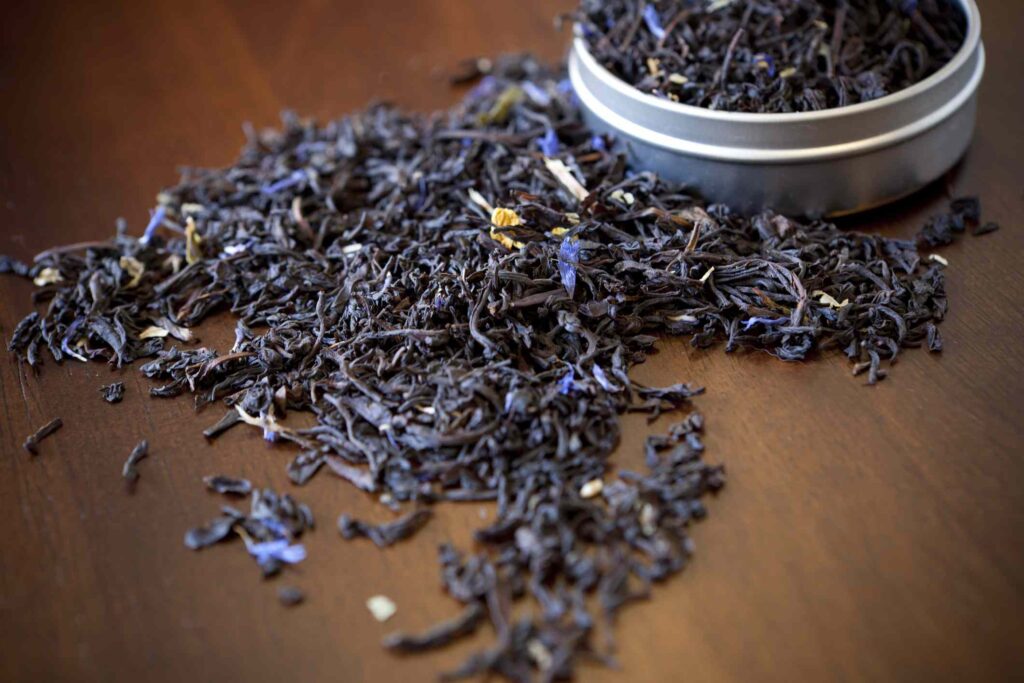
Table of Contents
Earl Grey tea is a globally beloved beverage known for its distinctive flavor, infused with the citrusy aroma of bergamot. But when it comes to its caffeine content, many tea drinkers are curious: how much caffeine does Earl Grey tea contain, and what benefits does it offer? Let’s dive into the details.
What Is Earl Grey Tea?
Earl Grey tea is traditionally made by blending black tea with bergamot oil, derived from the rind of the bergamot orange. While most classic Earl Grey teas are black tea-based, variations like green and herbal versions also exist. The caffeine content in Earl Grey depends on the type of tea used as its base.
How Much Caffeine Is in Earl Grey Tea?
The caffeine content of Earl Grey tea varies but is typically:
- 30-60 milligrams per 8-ounce cup for black tea-based Earl Grey.
- Lower caffeine levels in green tea-based versions (20-35 milligrams).
- Caffeine-free options are available in herbal or rooibos Earl Grey varieties.
Comparatively, a standard cup of coffee contains around 95 milligrams of caffeine, making Earl Grey a milder choice for those seeking a gentler energy boost.
Benefits of Earl Grey Tea Caffeine
- Enhanced Focus and Alertness
The moderate caffeine content in Earl Grey tea can provide a subtle energy lift without the jitters often associated with coffee. It promotes mental clarity and focus, making it a great choice for mid-morning or afternoon breaks. - Antioxidant Boost
The black tea in Earl Grey is rich in antioxidants like polyphenols, which can combat free radicals and support overall health. These antioxidants are complemented by the health-promoting properties of bergamot. - Supports Heart Health
Bergamot contains compounds that may help lower cholesterol levels and improve heart health. Combined with the caffeine-induced stimulation of circulation, Earl Grey tea is a heart-friendly beverage. - Improved Digestion
Earl Grey tea’s caffeine content stimulates digestion, while bergamot’s natural compounds may soothe an upset stomach. - Mood Enhancement
Caffeine, in moderation, can elevate mood and reduce stress levels. The uplifting aroma of bergamot adds to this calming effect.
Facts About Earl Grey Tea Caffeine
- Caffeine Sensitivity: If you’re sensitive to caffeine, consider limiting your intake to one or two cups a day or opting for decaffeinated versions.
- Time of Consumption: Enjoying Earl Grey in the morning or early afternoon is ideal for balancing energy levels without disrupting sleep.
- Brewing Influence: Longer steeping times and hotter water can extract more caffeine, so adjust brewing techniques based on your preference.
Who Should Avoid Earl Grey Tea?
While Earl Grey tea is generally safe, individuals with caffeine sensitivity, pregnant women, or those with specific health conditions (like acid reflux) should consult a healthcare provider before incorporating it into their diet.
Conclusion
Earl Grey tea caffeine offers a harmonious blend of energy and relaxation, making it a versatile beverage for tea enthusiasts. With its moderate caffeine levels and host of health benefits, Earl Grey is more than just a flavorful indulgence—it’s a lifestyle choice that nourishes both body and mind.
Whether you’re savoring a classic black Earl Grey or exploring a caffeine-free herbal variation, this iconic tea is perfect for any occasion.
